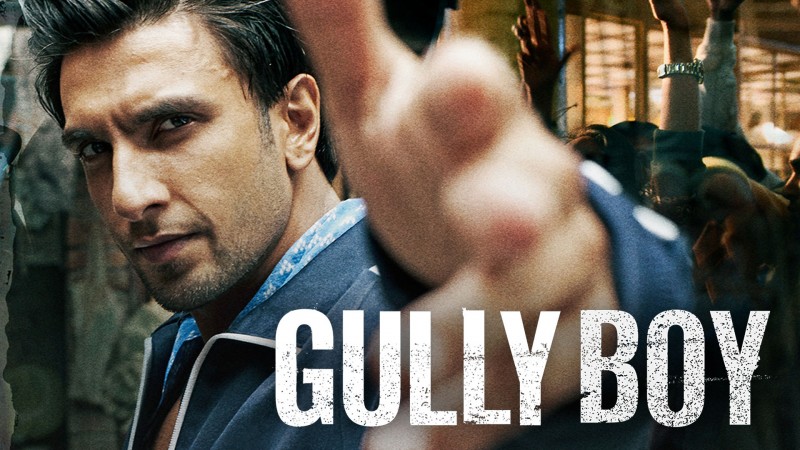
Millions of people were moved and captivated by a cinematic masterpiece that debuted on February 14, 2019, both in India and internationally. Not just another Bollywood film, Zoya Akhtar's "Gully Boy," starring Alia Bhatt and Ranveer Singh in the key parts, was a unique production. Breaking down barriers and giving voice to the voiceless, it was a global phenomenon in both culture and film. A major turning point in Indian cinema history was reached when the movie opened on 3350 screens domestically and 751 screens abroad.
The plot of "Gully Boy" centres on the life of Murad Ahmed, a young man from Mumbai's Dharavi slum. Murad hopes to overcome the limitations of his socioeconomic background with the help of the rhythms of rap and the expressive power of words. In spite of overwhelming obstacles, the marginalised youth in this coming-of-age drama dare to dream of a better life and explore their struggles, dreams, and aspirations. The movie's story has more authenticity because it was influenced by the real-life experiences of Indian rappers Naezy and Divine.
"Gully Boy" was released domestically in a grand style. It was among the most widely distributed Bollywood films at the time when it was released on an astounding 3350 screens throughout India on February 14, 2019. Valentine's Day was not a random choice for its release date. Valentine's Day was the ideal time to release the movie because of its themes of love, passion, and struggle, which connected with a wide range of viewers.
The film's wide release gave it the opportunity to see a large and varied Indian audience. "Gully Boy" was a conversation starter in both big and small cities, dismantling barriers and igniting debates on social issues like privilege, class, and the influence of art. Songs from the movie, especially "Apna Time Aayega" and "Azadi," became hits among young people, which increased the movie's appeal.
"Gully Boy" wasn't limited to the boundaries of India. Its success abroad was demonstrated when it opened 751 screens abroad, for a total of 4101 screens worldwide. The success of a Bollywood film greatly depends on its overseas market, particularly in areas where there is a sizable South Asian diaspora. The Middle East, the United States, Canada, the United Kingdom, Australia, and other nations with large Indian populations were among those where "Gully Boy" found a receptive and passionate audience.
There are a number of reasons for "Gully Boy's" success, which helped it connect with viewers around the world:
Universal Themes: The film's central themes—the quest for dreams, the conflict over one's identity, and the ability of art to transcend boundaries—are universal. Viewers everywhere were moved by these themes.
Genuine Representation: "Gully Boy" broke from the clichés frequently connected to Bollywood by portraying life in the Mumbai slums in an authentic manner. It provided an insight into the lives of the disenfranchised, illuminating their goals and challenges.
Music: The movie's rap and hip-hop-heavy soundtrack drew in a young audience from across the world. Even those who were not familiar with Hindi lyrics were enthralled with the catchy and meaningful songs.
Strong Performances: The main actors, especially Alia Bhatt and Ranveer Singh, won praise from critics for their roles. The film was impactful and relatable because of their ability to portray the characters' unfiltered emotions.
Direction by Zoya Akhtar: Audiences all across the world were captivated by Zoya Akhtar's deft storytelling and skillful direction. Her skill at crafting a gripping story made sure that the movie struck an emotional chord with audiences.
"Gully Boy" had an effect outside of the theatre. The movie was well-received by critics and was nominated for and won multiple awards. It served as India's official submission for the Best International Feature Film Oscar at the 92nd Academy Awards. Even though it didn't win the Oscar, its widespread recognition was demonstrated by its nomination.
At the 65th Filmfare Awards, the movie took home multiple prizes, including Best Film, Best Director (Zoya Akhtar), Best Actor (Ranveer Singh), and Best Actress (Alia Bhatt). The film's outstanding quality was demonstrated by the accolades it received from both domestic and international award ceremonies.
"Gully Boy" is more than just a Bollywood movie; it's a cultural phenomenon that introduced Indian cinema to the world. The movie was screened on 4101 screens worldwide thanks to a huge 3350 screen domestic release and a notable 751 screen international distribution. Beyond national boundaries, it was a cinematic masterpiece thanks to its universal themes, realistic portrayal, captivating music, strong performances, and expert direction.
The film's journey from the Dharavi slums to the international stage is a prime example of the ability of art, storytelling, and cinema to bridge cultural divides. "Gully Boy" is a movie that will always be recognised for shattering stereotypes, giving voice to the voiceless, and encouraging countless people to follow their dreams no matter what. It is evidence of the cinematic medium's enduring ability to bring people together and effect change on a global scale.
Alia Bhatt's Debut Production Casts a Glorious Light on Indian Cinema
'Yamla Pagla Deewana' Lights Up 1550 Screens in Bollywood History